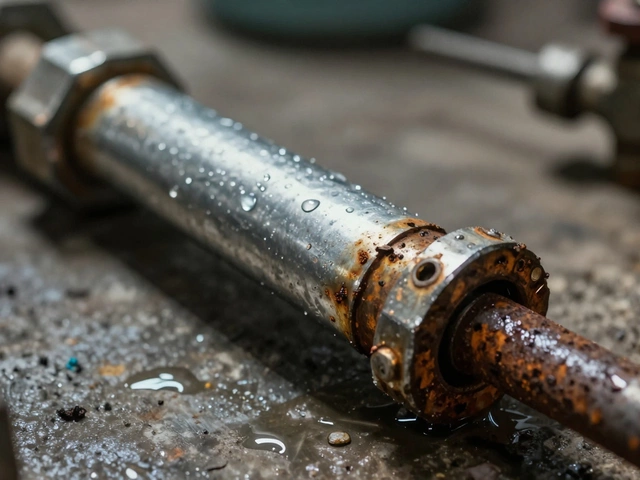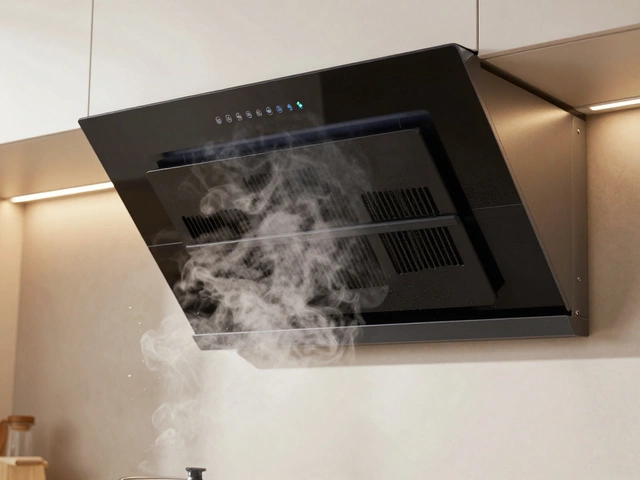How Often Should You Replace the Anode Rod in a Water Heater?
December 15 2025Household Machines: Essential Tips for Everyday Appliances
Every home runs on a handful of machines – your boiler, oven, fridge, washer, even the little extractor fan above the stove. When they work, you barely notice them. When they don’t, they can throw a wrench into your day. Below you’ll find practical advice that helps you keep these gadgets humming and know when it’s time to call a pro.
Routine Maintenance Made Easy
Most appliances only need a quick check once a year. For a boiler, a simple visual inspection of the pressure gauge and any odd noises can catch problems early. A water heater benefits from flushing out sediment; just turn off power, attach a hose to the drain valve, and run water until it runs clear. This alone can add years to the unit’s life.
Kitchen extractors and bathroom fans love a good clean. Remove the filter, wash it in warm soapy water, and brush away any grease buildup. A dusty fan motor can get noisy and lose efficiency, leading to excess moisture and mould – something nobody wants.
Fridges are happiest when the coils at the back are free of dust. A vacuum brush once a season keeps the compressor from working overtime, which translates into lower electricity bills. For washers, leave the door ajar after each load so the drum dries out and prevents mildew.
Repair or Replace? How to Decide
When a machine starts acting up, the first question is: how old is it? A 10‑year‑old boiler that’s losing pressure might be a candidate for replacement, especially if it’s far from the typical 12‑year lifespan. On the other hand, a 3‑year‑old oven with a faulty heating element is usually cheaper to fix.
Cost is the next factor. If a repair bill is more than half the price of a new unit, replacement often makes sense. But remember to factor in installation fees for big items like boilers or water heaters – they can add up fast.
Safety should never be ignored. Any sign of gas leaks, electrical sparks, or strange smells means you should shut the appliance off and call a certified engineer immediately. It’s better to spend a little on a professional check than risk a fire or carbon monoxide exposure.
For smaller gadgets like dishwasher racks or dryer lint traps, a DIY fix is usually within reach. Clean the lint screen after each tumble, clear the dishwasher spray arms with a toothbrush, and you’ll avoid most common breakdowns.
When in doubt, write down the symptoms – odd noises, uneven heating, leaks – and compare them to the common issues listed in our posts. Knowing whether a fan’s motor is simply clogged or its wiring is burnt can save you a call‑out.
Finally, keep a simple log. Note the date of each service, what was done, and any parts replaced. A quick glance at that sheet will tell you if an appliance is getting more attention than it should, which is a clear sign it’s nearing the end of its useful life.
By staying on top of easy maintenance steps and making smart repair‑or‑replace choices, you’ll keep your household machines reliable, safe, and energy‑efficient for years to come.
 24 Apr
24 Apr
What is an Example of an Appliance? Everyday Machines Explained
Wondering what counts as an appliance? This article breaks down what appliances are, why they're so important in our daily routines, and shows examples you probably use every day—like the trusty washing machine. You’ll also get practical tips for keeping your household machines running smoothly. Whether you’re curious about new gadgets or on the hunt for repair advice, this guide clears up the basics in plain, simple language.
Read More...



